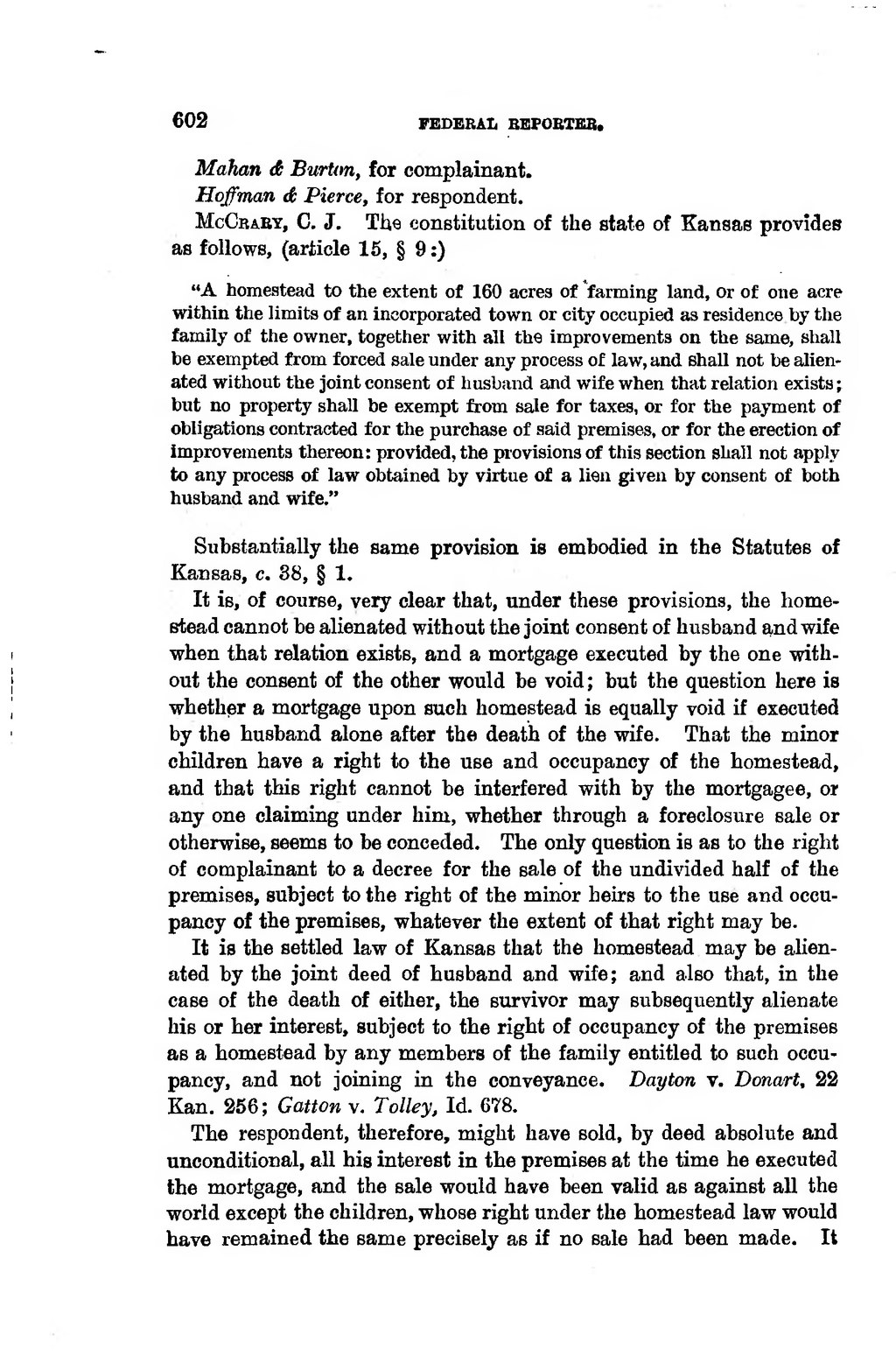602 FEDEBAIi BEFOBTEB, �Mahan e Burton, for complainant. Hoffman & Pierce, for respondent. �McCrasy, C. J. The constitution of the state of Kansas provides as folio ws, (article 15, § 9 :) �"A homestead to the extent of 160 acres of farming land, or of one acre within the limita of an incorporated town or city occupied as residence by the family of the owner, together with all the improveinents on the same, shall be exempted from forced sale under any process of law, and shall not be alien- ated without the joint consent of husbiind and wife when that relation exista ; but no property shall be exempt from sale for taxes, or for the payment of obligations contracted for the purchase of said premises, or for the erection of improvements thereon: provided, the provisions of thia section shall not apply to any process of law obtained by virtue of a lien given by consent of both husband and wife." �Substantially the same provision is embodied in the Statutes of Kansas, c. 38, § 1. �It is, of course, very clear that, under these provisions, the home- stead cannot be alienated without the joint consent of husband and wife when that relation exists, and a mortgage executed by the one with- out the consent of the other would be void ; but the question here is whether a mortgage upon such homestead is equally void if executed by the husband alone after the death of the wife. That the minor children have a right to the use and occupancy of the homestead, and that this right cannot be interfered with by the mortgagee, or any one claiming under him, whether through a foreclosure sale or otherwise, seems to be conceded. The only question is as to the right of complainant to a decree for the sale of the undivided half of the premises, subject to the right of the minor hoirs to the use and occu- pancy of the premises, whatever the extent of that right may be. �It is the settled law of Kansas that the homestead may be alien- ated by the joint deed of husband and wife; and also that, in the case of the death of either, the survivor may subsequently alienate his or her interest, subject to the right of occupancy of the premises as a homestead by any members of the family entitled to such occu- pancy, and not joining in the conveyance. Dayton v. Donart, 22 Kan. 256; Gatton v. Tolley, la. 678. �The respondent, therefore, might have sold, by deed absolute and unconditional, all his interest in the premises at the time he executed the mortgage, and the sale would have been valid as against all the world except the children, whose right under the homestead law would have remained the same precisely as if no sale had been made. It ��� �
